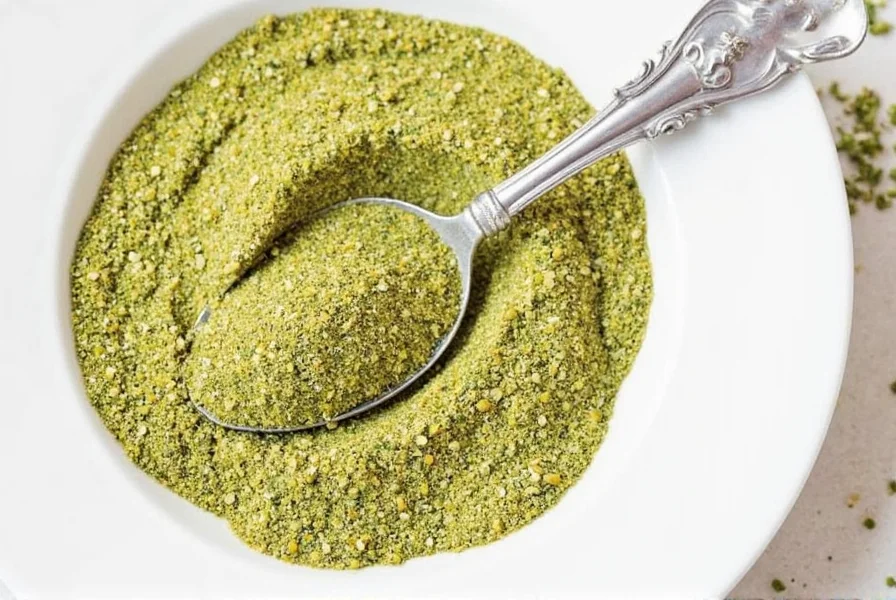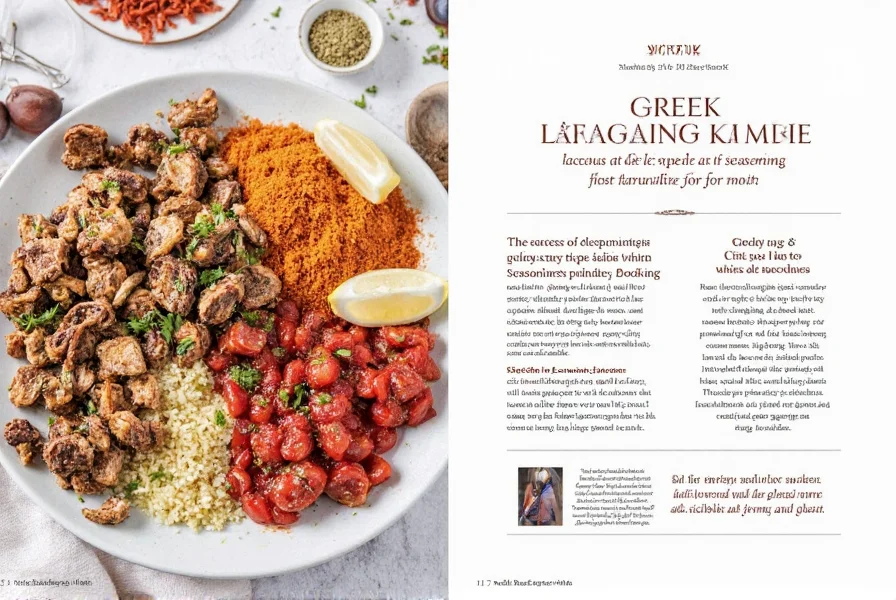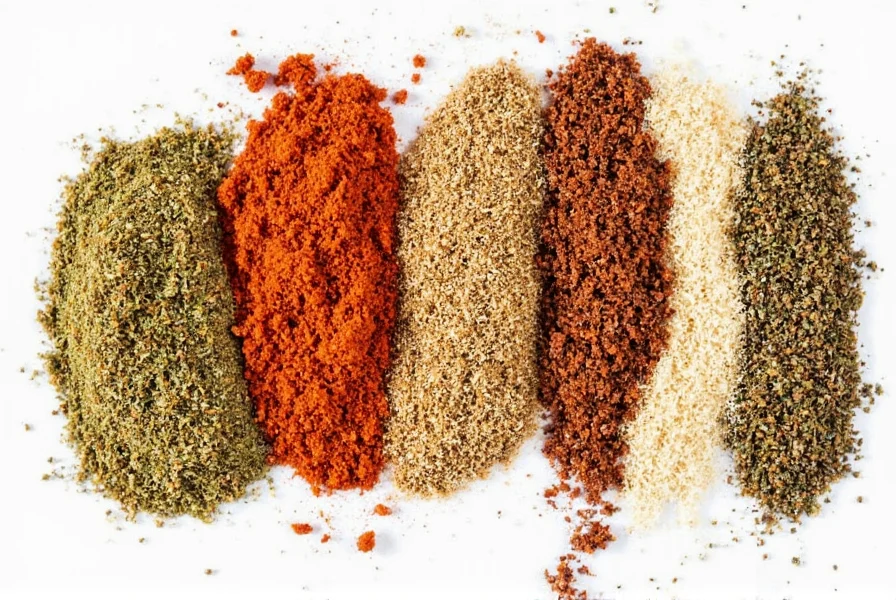Table of Contents
Introduction to Greek Seasonings for Meat
Greek seasonings are the secret to unlocking authentic Mediterranean flavors in your meat dishes. Whether you're grilling lamb, roasting chicken, or searing beef, the right Greek seasoning blend can transform your meal from ordinary to extraordinary. This guide covers everything you need to know about using Greek seasonings for meat, including ingredient breakdowns, expert usage tips, and how to choose the best blends for your kitchen.
Key Ingredients in Greek Seasonings
Greek seasonings for meat typically combine herbs, spices, and citrus to create a balanced, aromatic profile. Here are the essential ingredients and their roles:
- Oregano (50-60% of blend): The backbone of Greek seasoning, oregano provides a pungent, earthy flavor that pairs perfectly with grilled meats.
- Thyme (15-20%): Adds subtle floral notes that complement red meats like lamb and beef.
- Garlic (10-15%): Both powdered and fresh garlic enhance savory notes and help penetrate meat fibers.
- Dried Mint (5-10%): A signature Greek ingredient that adds freshness, especially for lamb dishes.
- Cumin (5%): Provides warm, nutty undertones that balance the herbs.
- Lemon Zest (5%): Brightens the blend and cuts through rich meat flavors.
- Black Pepper (5%): Adds gentle heat and enhances overall flavor complexity.

For a basic homemade Greek seasoning blend, mix 2 tablespoons dried oregano, 1 tablespoon dried thyme, 1 tablespoon garlic powder, 1 teaspoon dried mint, 1 teaspoon lemon zest, 1 teaspoon black pepper, and 1/2 teaspoon cumin. This ratio ensures balanced flavors without overpowering the meat.
Practical Tips for Using Greek Seasonings on Meat
Follow these expert tips to maximize flavor when using Greek seasonings on meat:
- Proper Measurement: For 1 pound of meat, use 1-2 teaspoons of Greek seasoning. Too much can overpower the meat, while too little won't deliver the full flavor.
- Marinating Time: For chicken and fish, marinate 30 minutes to 2 hours. For lamb and beef, marinate 2-4 hours (or overnight for tougher cuts). Always marinate in the refrigerator.
- Oil First: Coat meat with olive oil before applying seasoning to help it adhere better and prevent burning during cooking.
- Meat-Specific Pairings:
- Lamb: Use extra mint and lemon zest for classic Greek flavor
- Chicken: Add more garlic and oregano for bold flavor
- Beef: Use cumin and black pepper for deeper notes
- Fish: Use lighter application with extra lemon zest
- Cooking Method:
- Grilling: Apply seasoning just before grilling to prevent burning
- Roasting: Apply seasoning 30 minutes before roasting for better penetration
- Pan-searing: Apply seasoning right before cooking for best crust formation

Comparison Table of Popular Greek Seasoning Blends
| Blend Name | Main Ingredients | Flavor Profile | Best for |
|---|---|---|---|
| Greek Seasoning Mix | Oregano, thyme, garlic, cumin | Earthy, savory, slightly spicy | Lamb, beef, roasted vegetables |
| Herbes de Provence | Oregano, thyme, rosemary, lavender | Herbaceous, floral, aromatic | Poultry, fish, grilled meats |
| Moussaka Seasoning | Oregano, cinnamon, nutmeg, cloves | Warm, sweet, complex | Moussaka, stews, slow-cooked meats |
| Yia Yia's Greek Rub | Oregano, garlic, black pepper, lemon zest | Bright, zesty, herb-forward | Grilled lamb, chicken, seafood |

Buying Guide: How to Choose the Best Greek Seasonings
When selecting Greek seasonings for meat, consider these critical factors:
Key Quality Indicators
- Natural Ingredients: Look for blends with whole spices and dried herbs rather than artificial flavors or fillers. Check ingredient lists for "100% natural" or "no artificial additives" claims.
- Freshness Date: Choose products with clear manufacturing or expiration dates. High-quality blends should be consumed within 6-12 months of production.
- Source Transparency: Reputable brands will specify where ingredients are sourced (e.g., "Greek oregano" or "Mediterranean-grown thyme").
Expert Recommendations
- For authentic Greek flavor, choose blends with oregano as the primary ingredient (at least 50% of the blend).
- Look for blends that include lemon zest or dried lemon peel for authentic brightness.
- Avoid blends with excessive salt content (more than 20% of total weight) as this can mask other flavors.
Top Brands for Meat Applications
- Olive Nation: Known for authentic Greek oregano and balanced blends
- Simply Organic: Certified organic with transparent sourcing
- Spice Islands: Consistent quality with clear labeling
- Badia: Reliable for traditional Greek seasoning mixes

Frequently Asked Questions
What are the best Greek seasonings for chicken?
For chicken, the most effective Greek seasoning blend contains high oregano content (50-60%), garlic powder, lemon zest, and a touch of thyme. A ratio of 2 parts oregano to 1 part garlic to 1/2 part lemon zest works perfectly. For best results, mix 1 tablespoon of seasoning with 1 tablespoon of olive oil, then coat chicken pieces and marinate for 1-2 hours before cooking. This combination creates a flavorful crust while keeping the chicken moist and tender.
How long should I marinate meat with Greek seasonings?
Marinating time depends on the meat type and cut: Chicken breasts: 30-60 minutes; Chicken thighs: 1-2 hours; Lamb chops: 2-4 hours; Beef steaks: 2-4 hours; Tougher cuts (like flank steak or lamb shoulder): 4-12 hours; Fish fillets: 15-30 minutes maximum. Always marinate in the refrigerator, not at room temperature. For optimal flavor penetration, use a zip-top bag to ensure even coating and minimal air exposure.
Can I make my own Greek seasoning at home?
Absolutely! A professional-grade homemade Greek seasoning blend requires: 2 tablespoons dried oregano (Greek variety preferred), 1 tablespoon dried thyme, 1 tablespoon garlic powder, 1 teaspoon dried mint, 1 teaspoon lemon zest (dried), 1 teaspoon black pepper, 1/2 teaspoon ground cumin, and 1/4 teaspoon onion powder. Combine all ingredients in a bowl and mix thoroughly. Store in an airtight container away from light and heat. This blend stays fresh for 6 months and allows you to customize the ratios to your taste preferences.
What meats pair best with Greek seasonings?
Greek seasonings excel with specific meats based on traditional Greek cuisine: Lamb (the most traditional pairing, especially for souvlaki and moussaka), Beef (particularly for kebabs and grilled steaks), Chicken (especially thighs and drumsticks), Pork (for Greek-style chops or tenderloin), and Firm fish (like salmon or swordfish). Avoid using strong Greek blends on delicate fish like sole or tilapia, as the flavors may overwhelm the subtle taste. For vegetarian applications, roasted vegetables like eggplant, zucchini, and tomatoes work beautifully with Greek seasonings.
Are Greek seasonings spicy?
Traditional Greek seasonings are not spicy hot but provide complex flavor through herbs and spices. The heat level comes primarily from black pepper (typically 5% of the blend), which offers gentle warmth rather than spicy heat. Some modern blends may include red pepper flakes or cayenne, but authentic Greek recipes focus on herbal and citrus notes. If you prefer no heat at all, check ingredient lists for "no added chili" or "mild" designations. For those who enjoy heat, add a pinch of red pepper flakes separately after applying the base seasoning.
How should I store Greek seasoning blends to maintain freshness?
Store Greek seasoning blends in airtight glass containers in a cool, dark place away from heat sources. Avoid storing above the stove or in direct sunlight. For maximum freshness (up to 12 months), keep in the refrigerator. Check for freshness by smell: if the aroma is weak or musty, replace the blend. Whole spices retain freshness longer than pre-ground, but most Greek blends use dried herbs which have a 6-9 month shelf life after opening. Never store in plastic containers as they can absorb odors and moisture.
Can Greek seasonings be used in vegetarian or vegan dishes?
Absolutely! Greek seasonings work wonderfully in vegetarian and vegan cooking. They add authentic Mediterranean flavor to roasted vegetables (especially eggplant, zucchini, and tomatoes), hummus, lentil soups, Greek-style baked tofu, and stuffed grape leaves (dolmas). For vegetables, use 1 teaspoon of seasoning per 2 cups of produce. For hummus, add 1/2 teaspoon per cup of chickpeas. The herbs and citrus notes enhance plant-based dishes without requiring any animal products, making them a versatile addition to any kitchen.
What's the difference between Greek seasoning and Italian seasoning?
While both Mediterranean blends share some ingredients, Greek seasoning typically features more oregano (50-60%) and lemon zest with less basil and rosemary than Italian seasoning. Greek blends often include mint (especially for lamb dishes) and cumin, which are uncommon in Italian blends. Italian seasoning emphasizes basil, marjoram, and rosemary, creating a sweeter profile, while Greek seasoning tends to be more pungent and citrus-forward. Both can be used interchangeably in a pinch, but authentic recipes benefit from using the correct regional blend. For meat applications, Greek seasoning provides more robust flavor for grilled and roasted meats, while Italian seasoning works better with tomato-based dishes and pasta.
Conclusion
Greek seasonings are more than just a flavor enhancer—they're a gateway to the rich culinary traditions of the Mediterranean. With the right blend, you can transform any piece of meat into a dish that feels like it was straight out of a Greek village. From the boldness of oregano to the warmth of cumin, these seasonings offer something for every palate.
Whether you're a seasoned chef or a home cook looking to explore new flavors, Greek seasonings are a must-have in your pantry. With this guide, you're now equipped with the knowledge to choose, use, and enjoy these delicious blends in your own kitchen. So go ahead, spice up your next meal and savor the magic of Greek seasonings!










 浙公网安备
33010002000092号
浙公网安备
33010002000092号 浙B2-20120091-4
浙B2-20120091-4